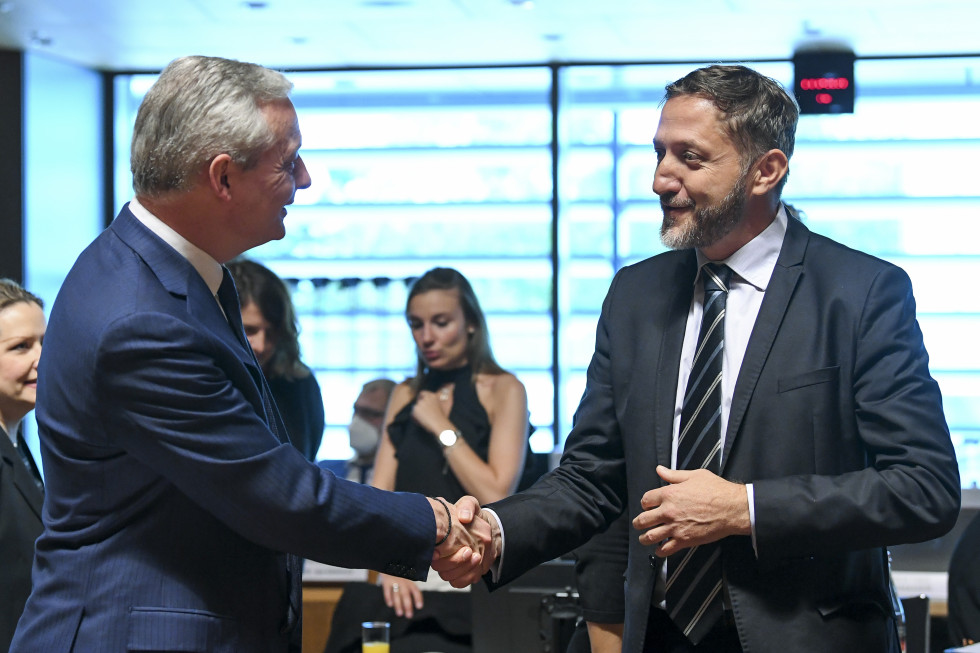Minister Klemen Boštjančič at the meeting of EU finance ministers

French and Slovenian finance minister Bruno Le Maire and Klemen Boštjančič | Author European Union
On Thursday, the ESM Board of Governors exchanged views on the internal and external audit reports and took note of the ESM’s 2021 financial statements and profit distribution. The ministers thanked the outgoing executive director for his work over 10 years, while they postponed the vote on appointing a new executive director.
In an opening address as a new member of the Eurogroup, Minister Boštjančič outlined the direction of Slovenia’s fiscal policy. In its extended composition, the Eurogroup adopted a statement on the necessary future steps of the Banking Union, with the focus on strengthening the common framework for bank crisis management and the rules for the use of funds from national deposit-guarantee schemes. The ministers also made preparations for the Euro Summit scheduled for 24 June 2022.
The meeting of the EIB Board of Governors, also attended by the new member, Minister Boštjančič, was held on Friday. The Board of Governors was briefed by the EIB President on the EIB’s activities in 2021, the conclusions of the Audit Committee and the state of play regarding the appointment of its members and the chairperson.
At the Economic and Financial Affairs Council configuration meeting, the ministers discussed the system of new own resources of the European Union needed to cover the repayment of the NextGenerationEU instrument. They also debated the economic, financial and other aspects of the Ukraine crisis and its implications for the European Union. In addition to discussing the consequences of the economic slowdown and inflationary pressures, they exchanged views on responses to increased prices and disruptions in energy supplies.
The ministers were also briefed on Croatia’s fulfilment of the conditions for adopting the euro on 1 January 2023 and endorsed the Council Presidency’s letter to the European Council on the enlargement of the euro area.
The agenda included a discussion on recommendations to Member States, setting out priority areas for action to ensure the green and digital transition, a resilient economy, and energy independence. As regards future developments, the further implementation of the Recovery and Resilience Facility was discussed. The ministers also adopted the Recovery and Resilience Plan of Poland.

